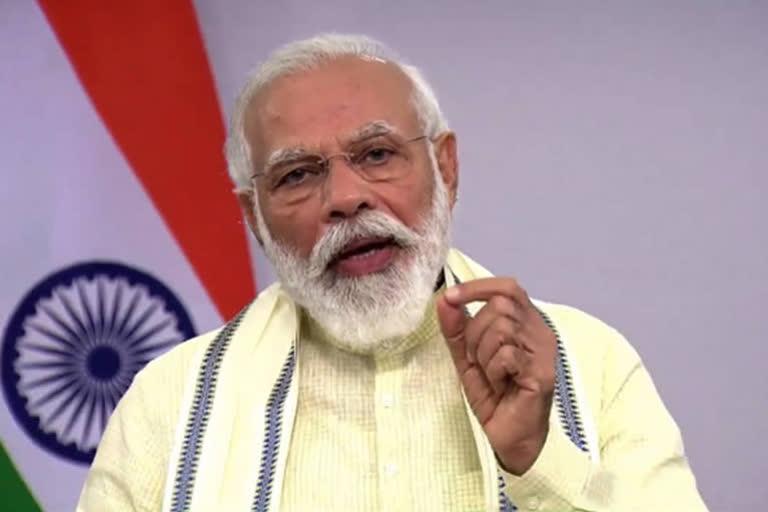New Delhi: Prime Minister Narendra Modi has said that he respects critics a lot while asserting that a government has to be run to build the nation and not to build the next government.
In an interview to Open magazine, he said that it was his conviction that for his own healthy development, he attached a big importance to criticism.
“I, with an honest mind, respect critics a lot,” Modi stated. “But, unfortunately, the number of critics is very few. Mostly, people only level allegations, the people who play games about perception are more in number. And the reason for this is that, for criticism, one has to do a lot of hard work, research and, in today’s fast-paced world, maybe people don’t have time. So sometimes, I miss critics.”
He expressed the view that so far there has been only one model of politics in which governments were run to build to build the next government.
“My fundamental thinking is different. I believe we have to run the Government to build the nation .The tradition has been to run the government to make your party win but my purpose is to run the government in a way to make our country win,” the Prime Minister said.
Asked about the satisfying moments in his 20 years of governance from being chief minister of Gujarat to becoming prime minister, he gave the recent example of India's performace in the 2020 Tokyo Olympics.
“In the last few months, I got to meet and interact with our Olympic and Paralympic heroes,” he said. “Tokyo 2020 has been India’s finest so far. Yet, naturally there were several athletes who did not win medals. When I met them, they were lamenting their inability to win medals. But each of them only had praise for the efforts of our nation in supporting them in their training, facilities, and other kinds of assistance. At the same time, they were determined and energised to give their best to win more medals.”
Also read: Prime Minister Narendra Modi addresses UN General Assembly
Regarding handling the Covid-19 pandemic in the country, the Prime Minister said that the biggest lesson from it was that “India has an unparalleled ability to unite, find a common purpose, come together, and a tremendous capacity to deliver when a need arises”.
“From being a net importer of PPE kits, we have now become one of the biggest manufacturers across the globe,” he said.
Apart from this, he said that Covid-19 “has also made us realise that we need to further strengthen our efforts for building world-class medical infrastructure”.
“A lot of people today speak about the need to augment healthcare infrastructure,” Modi said. “However, we need to remember that it cannot be merely done by adding more beds or rooms, it needs skilled and trained medical personnel. Over the last seven years, we have been actively working towards this. From six AIIMS (All India Institute of Medical Sciences) in 2014, we are now building 22 AIIMS. From around 380 medical colleges in 2014, today we have around 560 medical colleges. From around 82,000 undergraduate and postgraduate medical seats, we now have around 1,40,000 undergraduate and postgraduate medical seats. Recently, we came out with a scheme to help states ramp up medical infrastructure in all categories, including paediatric facilities. We are also working on launching a massive scheme to boost health infrastructure that will address a lot of legacy issues.”
Regarding the three controversial agricultural laws against which farmers across the country have been protesting for over 10 months now, he said that those opposing these laws are displaying “intellectual dishonesty” and political betrayal.
“These were the same people who wrote letters to chief ministers asking them to do the exact same thing that our government has done,” the Prime Minister said. “These were the same people who wrote in their manifesto that they would enact the same reforms that we have brought. Yet, just because some other political party, blessed by the will of the people, is enacting the same reforms, they have made a complete U-turn and in a brazen display of intellectual dishonesty, completely disregard what will benefit the farmers and only seek what they think will benefit them politically.”
He said that one could see the same “rajneetik dhokhadhadi” (political betrayal) when it came to Aadhaar card, GST, farm laws and even crucial matters such as arming the country's security forces.
“Promise something and make arguments for it but oppose the same thing later without any moral fibre,” he said.



